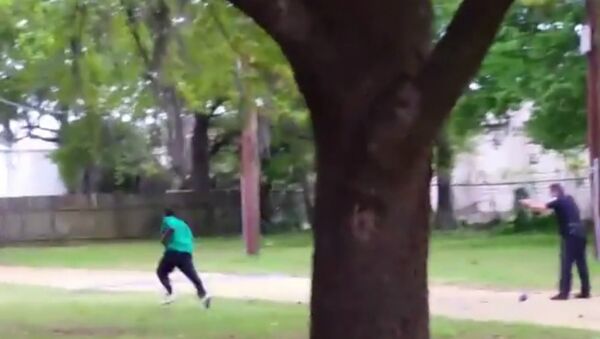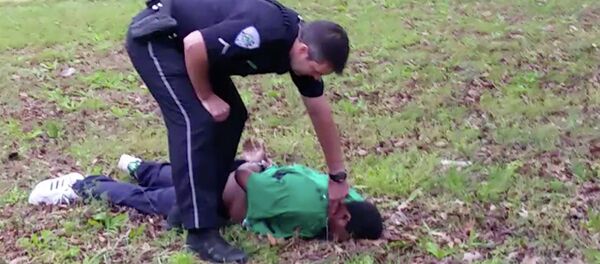On Friday evening, the judge dismissed the jury for the weekend, ending deliberations for the week. The jury will return on Monday morning at 9 a.m.
— T.J. Holmes (@tjholmes) December 2, 2016
The verdict, whether guilty or not, is required to be unanimous. If the jurors could not agree on murder charges they are supposed to resort to the manslaughter charge. A unanimous not guilty vote on both charges would have prompted an acquittal.
— T.J. Holmes (@tjholmes) December 2, 2016
On Friday, after over 14 hours of deliberations, the jurors told the judge that they could not reach consensus. The jury consisted of 11 white people and one black person. The Jury foreperson stated that there was one lone juror who opposed a guilty verdict.
— Ari Melber (@AriMelber) December 2, 2016
“It is clear that jurors will not be able to come to consensus,” the note to the judge read.
“You have a duty to make every reasonable effort to reach a unanimous verdict,” the judge said. “Discuss your differences with an open mind.”
He warned that not coming to a consensus would force him to declare a mistrial, saying “at some other time I will try this case with some other jury where you now sit … we will go through this whole process again.”
The jury eventually went back to deliberations, but were still unable to come to an agreement.
The case sparked national protests, after footage filmed on the cellphone of a witness went massively viral. The video clearly captured former North Charleston Officer Michael Slager, 35, shooting Scott five times in the back as he ran away from a traffic stop over a broken tail light.
Slager was terminated from the department following the shooting, and had pleaded “not guilty” to the murder charge.
“I pulled my firearm and pulled the trigger,” Slager testified during the trial, claiming that he feared for his life. “I fired until the threat was stopped like I’m trained to do.”
The disgraced former officer also broke down and became very emotional on the stand.
"It's been a nightmare," Slager testified. "My family's been destroyed by this. Scott's family has been destroyed by this."
During closing arguments on Wednesday evening, the defense claimed that the case was based on “a false narrative” created by the media — while the prosecution explained to jurors that “beyond a reasonable doubt” does not necessarily mean “beyond all doubt.”
"There are a lot of things that 'beyond a reasonable doubt' does not mean," Solicitor Scarlett Wilson told the jurors. "The judge will give you an instruction and you'll see that it's the kind of doubt that [makes] you hesitant to act.”
"It means that it's proof beyond a reasonable doubt when we have proven our case, not beyond every doubt, not beyond a shadow of a doubt, but a reasonable doubt," Wilson said.
She went on to assert that in life it is nearly impossible to “prove things beyond all doubt 100 percent."
While the jury was offered the option of a lesser charge of manslaughter, the prosecution argued that by shooting Scott repeatedly in the back, Slager showed evidence of malice — which is the difference between murder and manslaughter.
“Our whole criminal justice system rides on the back of law enforcement," Wilson argued, and because of that, "they have to be held responsible when they mess up."
In October, the Charleston city council agreed to settle a lawsuit by Scott’s family for $6.5 million.
In addition to the state’s murder charge, Slager is also facing a federal charge of “deprivation of rights under the color of the law, use of a weapon during the commission of a violent crime and obstruction of justice.”
Slager is facing a sentence of 30 years to life if convicted of murder, or two to 30 years in prison if convicted of voluntary manslaughter.




